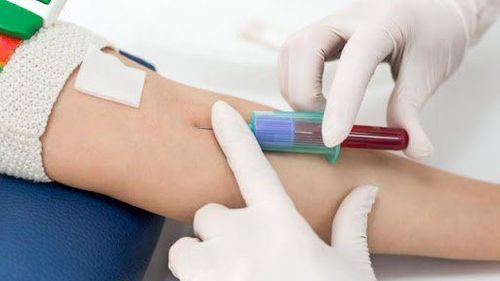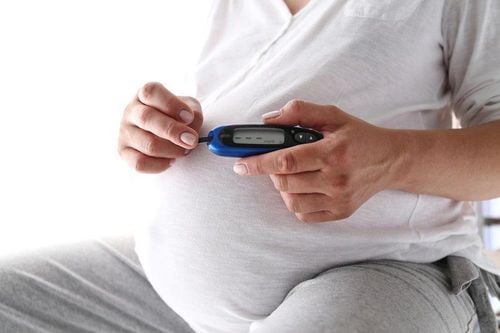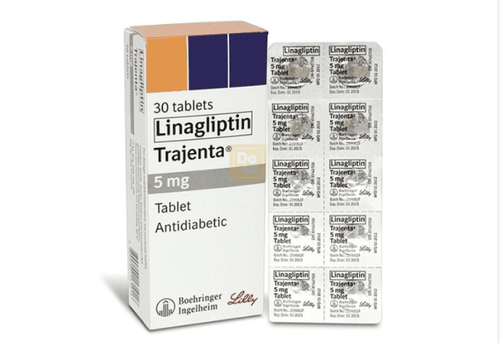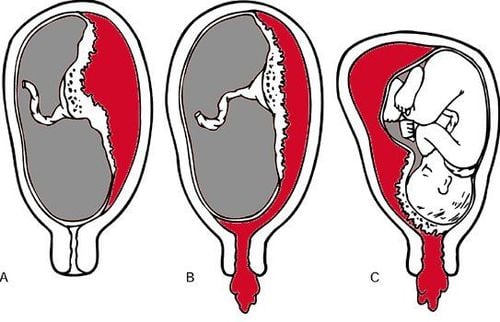This is an automatically translated article.
The article was professionally consulted by Doctor Department of Obstetrics and Gynecology - Vinmec Hai Phong International General Hospital.
Gestational diabetes is a disease that causes many dangerous complications for both mother and baby. Understanding this disease as well as its causes will help pregnant women reduce the risk of this disease. Besides, early detection and timely intervention will significantly reduce complications.
1. What is gestational diabetes?
Gestational diabetes is a condition in which blood sugar levels rise during pregnancy. Gestational diabetes affects 10% of pregnant women in the US each year.
There are two types of gestational diabetes, including: gestational diabetes type 1 and gestational diabetes type 2. Pregnant women with type 1 gestational diabetes can control the disease through diet and exercise. sex. Pregnant women with type 2 diabetes need to take insulin or other medications to treat the condition.
Gestational diabetes usually goes away after you give birth. However, the disease can affect a child's health and increase the risk of type 2 diabetes.
2. Signs of gestational diabetes
The symptoms of gestational diabetes are often non-specific, so the disease is often discovered during a routine check-up.
Some common signs of gestational diabetes include:
You feel more thirsty than usual You are hungry and eat more than usual You urinate more often than usual.

3. Causes of gestational diabetes
When you eat, the pancreas releases insulin, a hormone that helps move a sugar called glucose from the blood to the cells of the body, and uses it for energy.
During pregnancy, your placenta makes hormones that cause glucose to build up in your blood. Normally, the pancreas can produce enough insulin to handle this, but when the body doesn't produce enough insulin or stops using insulin as it should, blood sugar levels rise and this is what happens. causes of gestational diabetes in pregnant women.
The need for energy during pregnancy is higher, so the need for sugar will also increase. However, your body does not always produce enough insulin to match the increased sugar needs of pregnancy.
In addition, during pregnancy, to help the fetus develop, the placenta will produce hormones. These hormones can have a negative effect on insulin, causing a hormonal disorder. It also puts you at a higher risk of gestational diabetes.
Besides, there are a number of factors that put you at high risk of gestational diabetes, including:
Being overweight, obese during pregnancy

Have blood sugar levels that are higher than necessary but not high enough for diabetes (this is called pre-diabetes) Have a family member with diabetes Have had gestational diabetes during pregnancy Previous Pregnant women with high blood pressure Have ever given birth to a baby weighing more than 4kg Have ever given birth to a baby with birth defects or were stillborn Pregnant women over 25 years old.
4. Diagnosis of gestational diabetes
Gestational diabetes usually occurs around the second half of pregnancy. Your doctor will check you between weeks 24 and 28, or possibly earlier if you're at high risk.
Your doctor will order you to perform a test to check your blood sugar. If the results show that your blood sugar is above a certain level, usually around 200 milligrams per deciliter (mg/dL), you will need an oral glucose tolerance test. This means checking your blood sugar without food and doing a glucose test after 3 hours.
If you are at high risk but your test results are normal, your doctor may retest after a period of time to make sure you do not have diabetes.

5. Treatment of gestational diabetes
If you have gestational diabetes, early treatment is good for both mother and baby. Your doctor will do the following:
Check your blood sugar about 4 times a day Check your urine for ketones Follow a healthy diet. Your doctor will regularly monitor your weight and your baby's growth, and may give you insulin or another medicine to control your blood sugar.
The American Diabetes Association recommends these goals specifically for pregnant women to check blood sugar:
Before meals: 95 mg/dL or less One hour after meals: 140 mg/dL or less Two hours after a meal: 120 mg/dL or less. In addition, when having diabetes during pregnancy, pregnant women need to change their diet and exercise, including:
Follow a healthy, low-sugar diet: Follow an eating plan Drink specifically for people with diabetes. Consult with your doctor to make sure you're getting all of the nutrients you need. Instead of opting for sugary snacks like cookies, candy and ice cream, you can use some other products like fruit, carrots or raisins, in addition to your diet of green vegetables and whole grains.

Exercise during pregnancy: you should exercise as soon as possible. Set a goal of exercising for about 30 minutes a day. Running, walking, swimming, and biking are all good options, but you need to take it easy, of course.
Gestational diabetes usually begins at the beginning of the third trimester. However, if you have certain high-risk factors, your doctor may recommend an early glucose test, possibly towards the end of the first trimester. This is done again between 24 and 28 weeks of pregnancy and if the result is negative you won't need to get tested again.
Vinmec International General Hospital is the address chosen by many families during pregnancy. In particular, when pregnant women choose the Package Maternity Care Program right from the beginning of their pregnancy from the first months of pregnancy, they will be able to fully participate in antenatal check-ups, periodical 3D and 4D ultrasounds, and other health care providers. routine tests to ensure the mother is healthy and the fetus is developing comprehensively.
Pregnant women will be consulted and checked for health under the close supervision of experienced and specialized obstetricians, helping mothers gain more knowledge to protect their health during pregnancy as well as reduce pregnancy loss. reduce complications for mother and child.
Please dial HOTLINE for more information or register for an appointment HERE. Download MyVinmec app to make appointments faster and to manage your bookings easily.













